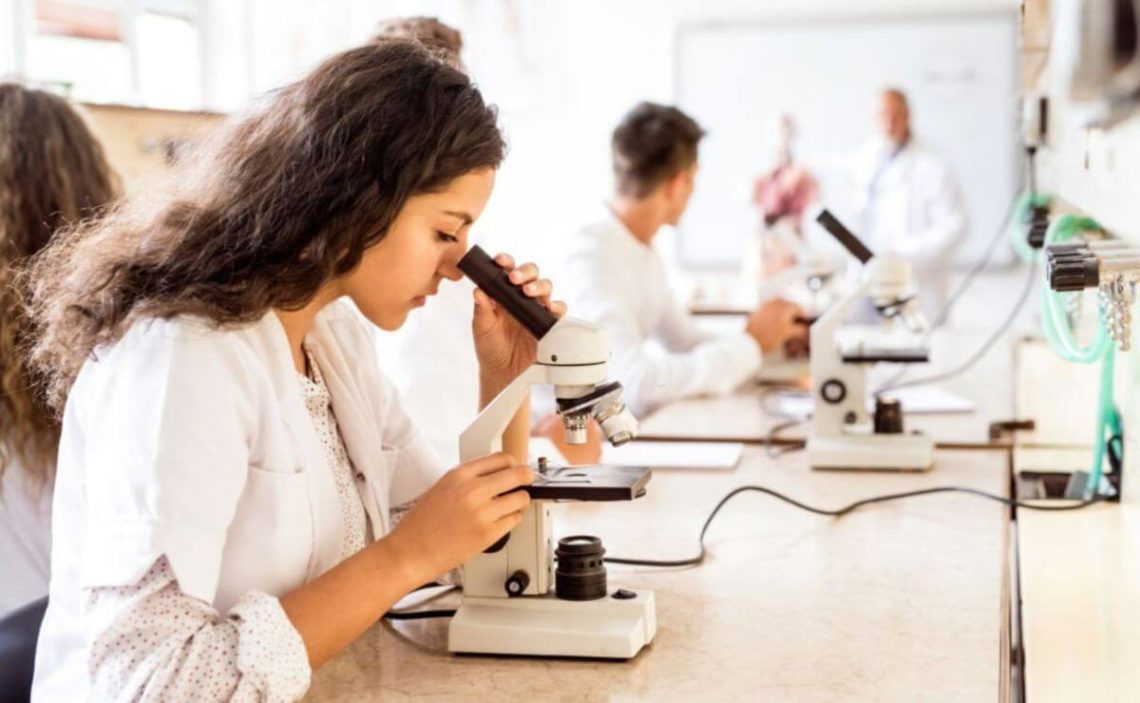After graduating high school, you should decide whether you want to seek a job or continue your education at a university. This decision can be pretty difficult. Knowing which career you want to pursue and where you want to learn can take some time. Biology, for instance, is a very extensive line englobing the research of all living beings, and that is why different schools provide specialized programs.
Also, it would help if you chose the place where you feel most comfortable, and not the one your parents went to study, since you will spend most of your time there until you graduate.
So, look through some places near and outside your state to find a biology school that catches your eye. To help ease the process, here is a guide with the best undergraduate programs and colleges in the country.
How can I start choosing a school?
Your choice will greatly impact your future, so you might feel pressure while determining which biology schools are for you.
It would be best to start by finding out what you want to specialize in. Your first years in college will introduce you to the basics about biology and common subjects everyone needs to learn along the way. Later in your career, you will have increasingly deeper and more specific topics.
For example, studying microbiology will not be the same experience as zoology. These two have distinct materials that require different approaches and sets of skills.
So, if you have an idea of what you liked the most in high school, research to check if you are interested in that topic, and then make your choice.
Another thing to take into consideration is if you want to work doing lab research or prefer working in the field. You will get to experience both, but some biology schools have specialized programs depending on these two. You do not have to rush with your answer; find what interests you the most and look for the faculty you want to enter.
What can I do with a biology degree?
Biology offers a large range of jobs you could enroll in, but those jobs also require that you excel in the area. Even if you do not finish your career, you can still find some jobs as an assistant or teacher.
However, a college degree is usually required to get a better job. Some of the most common positions or profiles in this area are microbiologists, pharmacists, neuroscientists, zoologists, and others.
If you want to find something even better, you will have to gain experience by working in a company and/or doing a master´s degree or a doctorate.
Achieving one of these can improve your options to getting a new job or even starting your own research. If you do not like to spend your time inside an office or lab, try field jobs like taking care of the environment as an ecologist or studying the sea as an oceanographer.
Ten great biology schools you could study at
You may not find exactly what you are looking for at first, but we recommend keeping an open mind about the programs you can get at these schools.
According to CollegeSimply, if you want to get a chance to enter in one of these schools, you need to score your SAT and ACT at least between these ranges:
Harvard University
- Acceptance rate: 5%
- SAT range: 1460-1580
- ACT range: 33-35
Standford University
- Acceptance rate: 5%
- SAT range: 1420-1570
- ACT range: 31-35
Massachusetts Institute of Technology (MIT)
- Acceptance rate: 7%
- SAT range: 1510-1580
- ACT range: 34-36
University of California – Berkeley
- Acceptance rate: 17%
- SAT range: 1310-1530
- ACT range: 30-35
Johns Hopkins University
- Acceptance rate: 11%
- SAT range: 1470-1560
- ACT range: 34-36
Brown University
- Acceptance rate: 8%
- SAT range: 1440-1560
- ACT range: 33-35
University of California – San Diego
- Acceptance rate: 37%
- SAT range: 1270-1480
- ACT range: 28-34
Princeton University
- Acceptance rate: 6%
- SAT range: 1450-1570
- ACT range: 32-35
University of Pennsylvania
- Acceptance rate: 9%
- SAT range: 1460-1570
- ACT range: 33-35
Washington University in St. Louis
- Acceptance rate: 16%
- SAT range: 1480-1560
- ACT range: 33-35
Do not be afraid to choose this career
Take the initiative and start learning about your career before even joining. Sometimes knowing what you are getting into can help you break the ice and get more comfortable.
If you think biology is not for you, talk to one of your teachers or a career advisor. Your parents are also your support for all of your inconveniences regarding college. Do not be afraid to look for assistance.
Ultimately, the decision is yours, and specializing in the biology branch you want will bring satisfactory results in the future.


